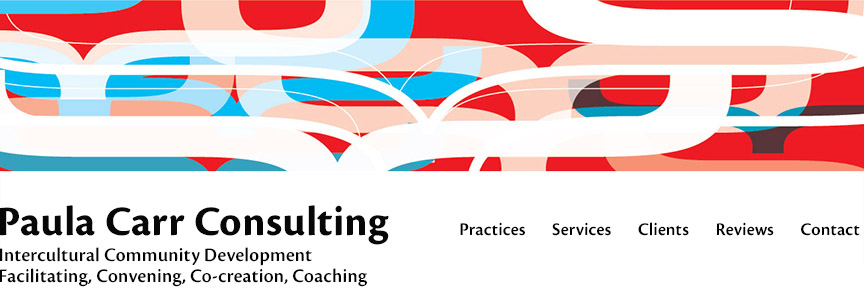

"Paula is one of the most positive, community building, consensus building people I know. Paula's warmth and energy brings life, creativity and inspiration to any group.”
Ingrid Kastens, MSW
Executive Director
Pacific Community Resources Society

Let me introduce myself. My name is Paula Carr. I have led several non-profit and charitable organizations, focusing on community development, service provision and issue resolution in health, education, recreation, employment, family support, childcare, arts and culture, immigrant settlement, food security and community safety.
I have facilitated many stakeholder collaborations within and between multiple sectors, bringing together governments, experts, agencies and people from indigenous communities, immigrants, children, youth and families, seniors, and people living in poverty. I have also coached and mentored over a range of subjects including citizen engagement, community leadership development, and life-work harmony.
As the Executive Director of Collingwood Neighbourhood House for more than twenty years, I worked with local residents to build a sense of community in a neighbourhood where 70% speak English as a second language. This work was supported by 100 staff, 20 contractors, 400 volunteers and a budget over 4 million. During that time, I helped to develop a unique collection of practices, now a recognized approach to intercultural community development, documented in Leonie Sandercock and Giovanni Attili’s book and film, Where Strangers become Neighbours.
Part of my approach to community development comes from my growing up in the small town of Wilcox, Saskatchewan, population 100. In a small town people are connected and care about one another. My work tries to bring the best of the small town to the larger world.
I gratefully acknowledge that I live, work and play within the ancestral, traditional, and unceded territory of the Coast Salish nations, including the territories of the xʷməθkwəy̓əm (Musqueam), Skwxwú7mesh (Squamish), and Səl̓ílwətaʔ/Selilwitulh (Tsleil-Waututh)